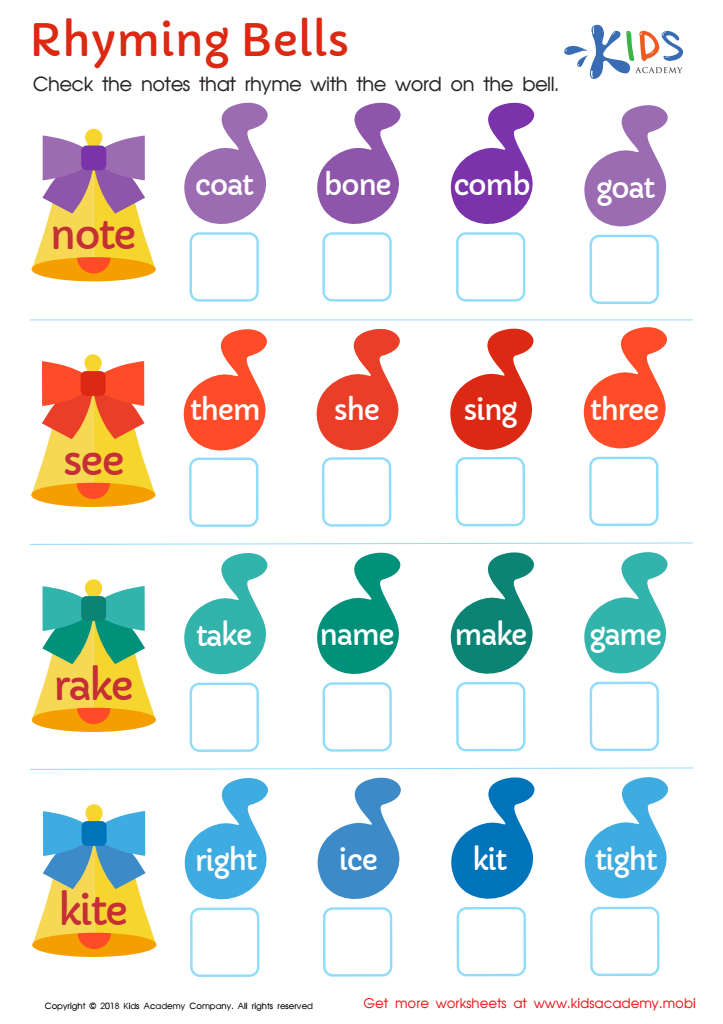Rhyming skills development Normal Phonics Worksheets for Ages 6-8
4 filtered results
-
From - To
Enhance your child’s phonics with our Rhyming Skills Development Normal Phonics Worksheets designed for ages 6-8. These engaging activities focus on rhyming words, promoting early reading and spelling abilities. Our expertly crafted worksheets use fun and interactive exercises to help children recognize sound patterns, improve word recognition, and build a solid phonics foundation. Ideal for both classroom and home learning, these worksheets support a crucial aspect of literacy development. Download today and set your child on the path to reading success with effective and enjoyable phonics practice. Perfect for parents and teachers alike!


Rhyming Words Rhyming Worksheet


Rhyming Bells Worksheet


First Words: Picture Rhymes Worksheet
Rhyming skills are fundamental in the early phonics development of children aged 6-8, laying the groundwork for reading proficiency and overall literacy. For parents and teachers, focusing on these skills is crucial as they serve as effective building blocks for language acquisition. Rhyming enhances a child's ability to recognize patterns in sounds, making it easier to decode and construct words. This phonological awareness is critical for understanding spelling patterns and aids in word prediction while reading, boosting reading fluency and comprehension.
Moreover, engaging in rhyming activities strengthens a child's memory and auditory discrimination. By recognizing rhythmic patterns and similarities in word endings, children improve their ability to recall words and distinguish subtle differences in sounds, enhancing their vocabulary and listening skills. This auditory practice is essential not only for reading but also for clear and precise speaking.
Additionally, rhyming is inherently playful and enjoyable, making learning feel more like a game rather than a chore. This fun element can motívate children, fostering a positive attitude toward learning and encouraging regular practice.
Overall, prioritizing rhyming in the ages 6-8 can significantly impact a child's future academic success, social skills, and lifelong love of reading. Therefore, parents and teachers should integrate rhyming activities into daily instruction and at-home practice.
 Assign to My Students
Assign to My Students




















